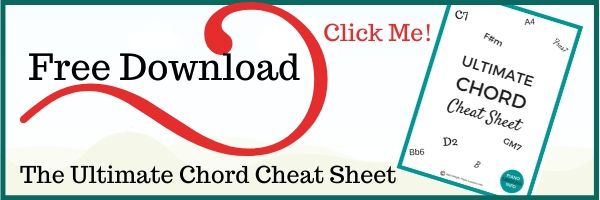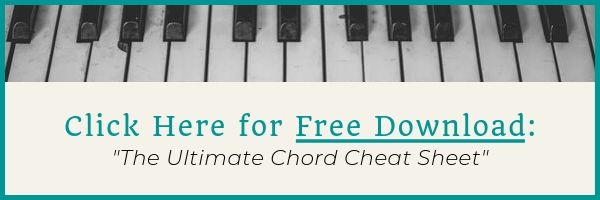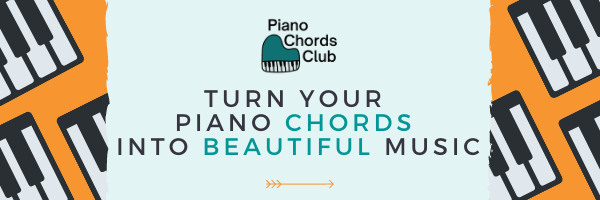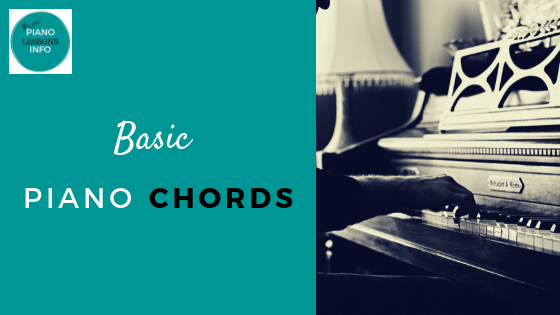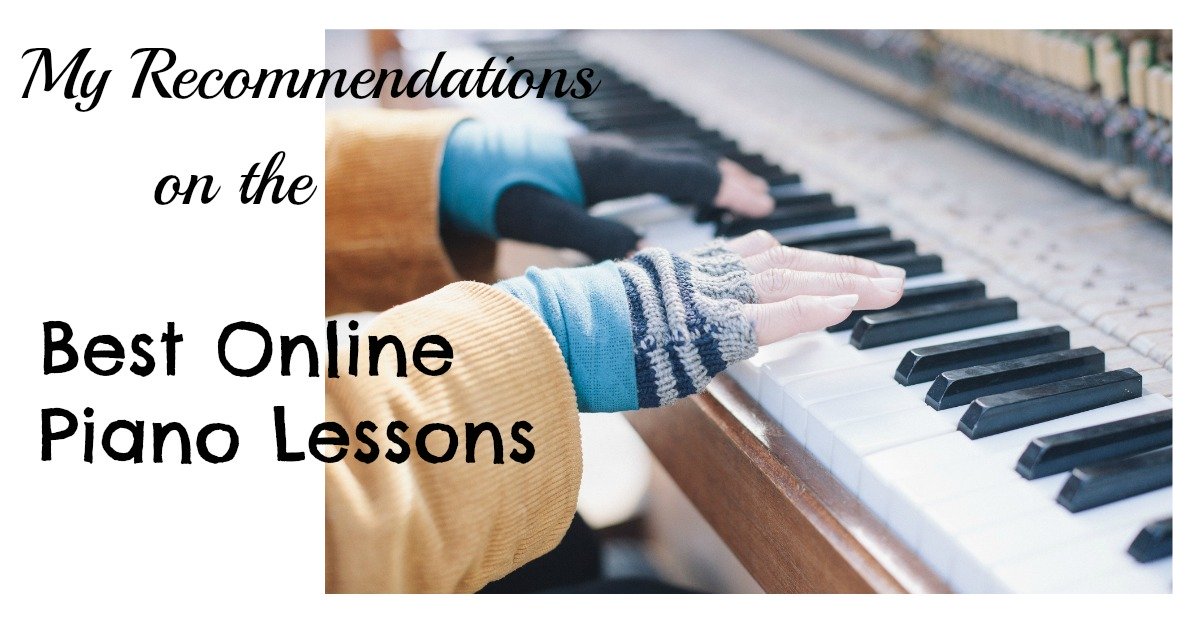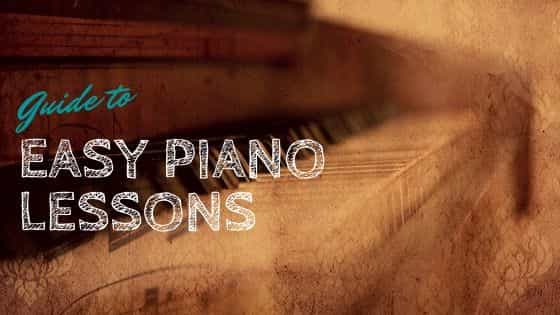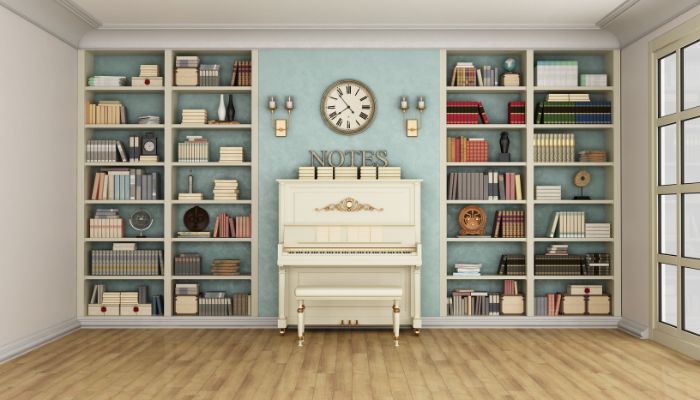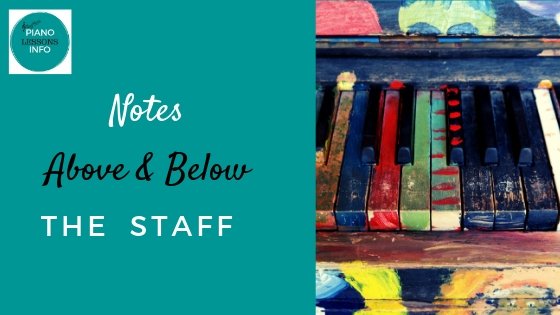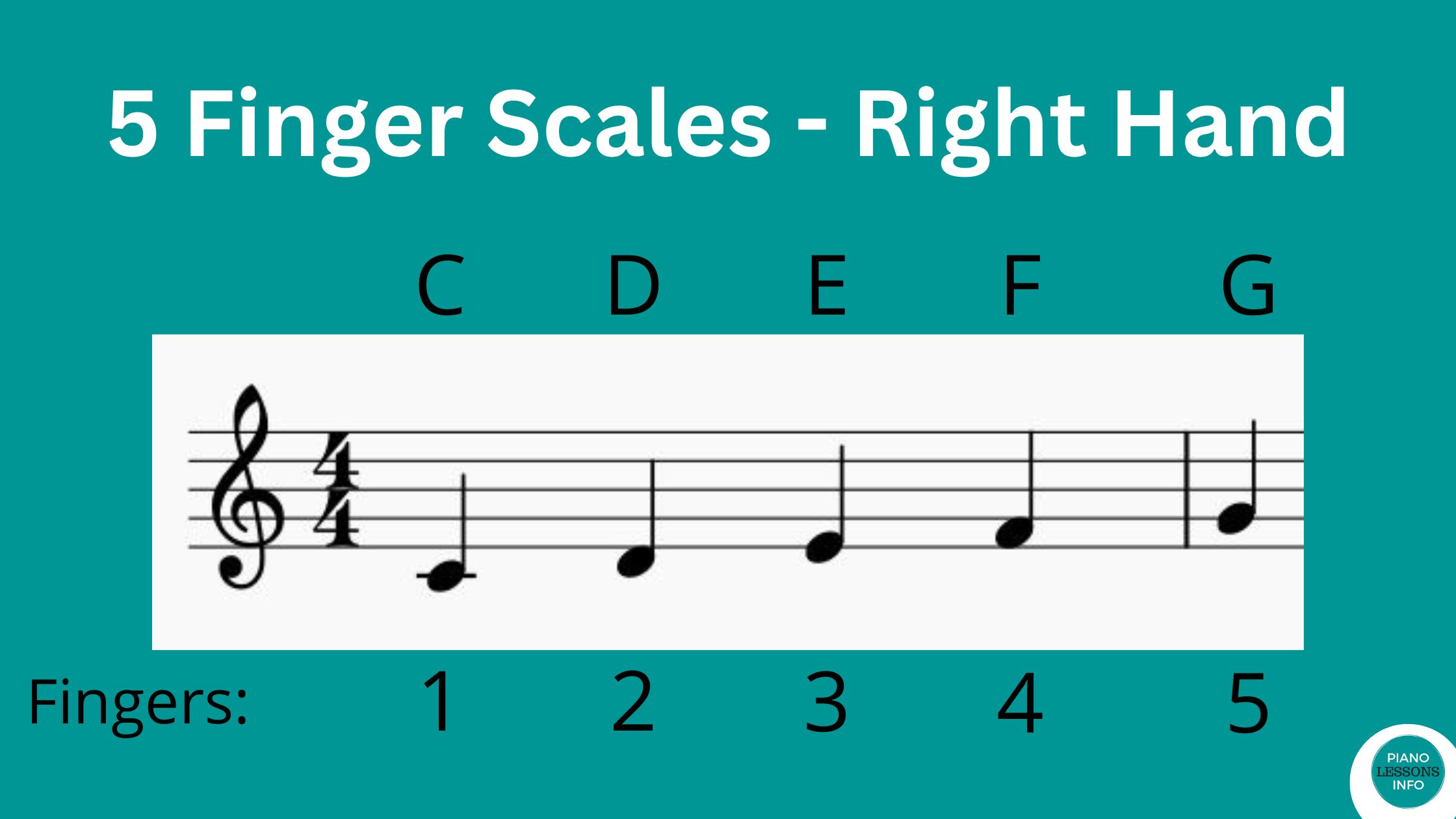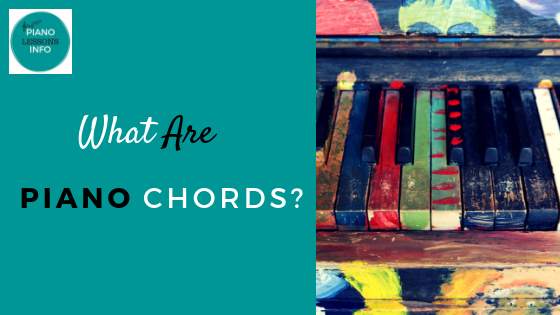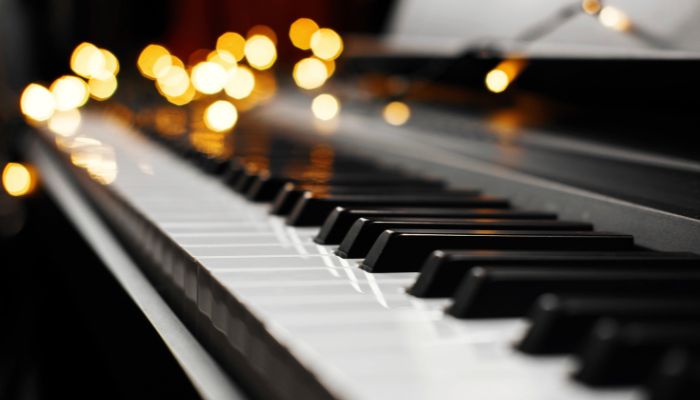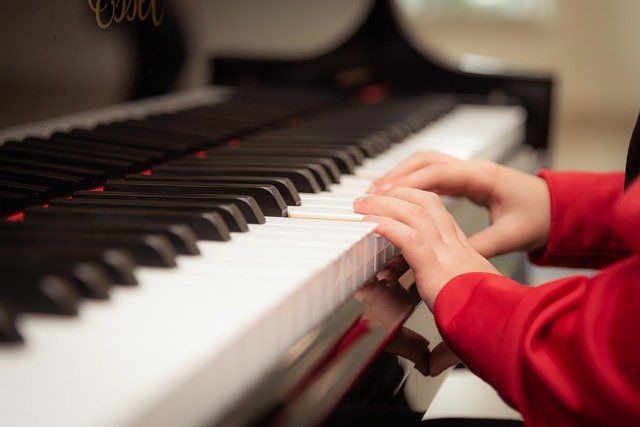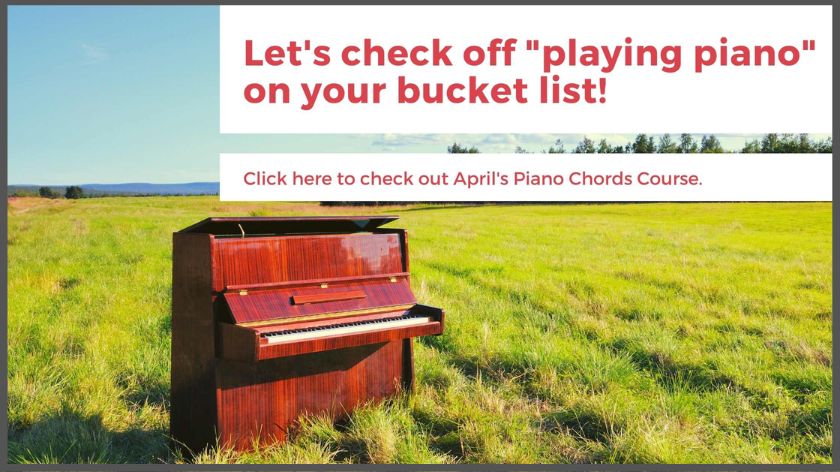Is Playing Piano a Talent or Skill?
Have you ever wondered if playing the piano is something you're born with or a skill that can be developed with practice? It's a common debate and interesting debate: is playing piano a talent or a skill? Or both? And can you have one without the other?
If you're starting your piano learning journey, or considering one, this is a really important topic to consider because it'll effect everything you do.
Talent: Natural Gift or Innate Ability?
When we see someone effortlessly play the piano, it's easy to assume they have a special talent for music. Some people just seem to have a natural knack for it, effortlessly creating beautiful melodies.
While it's true that some individuals may have an innate inclination towards music, we shouldn't think that talent alone is the only factor. In fact, talent alone will get you nowhere. It's the actions that you take that will actually get you somewhere.
Skill: The Result of Dedication and Practice
Behind every skilled pianist lies hours of practice, determination, and hard work. Skill can be developed through consistent effort, effective learning methods, and a genuine commitment to improvement.
Learning to play the piano involves understanding music theory, developing finger dexterity, coordination, and truly connecting with the music. These skills are built over time with practice and a passion for getting better.
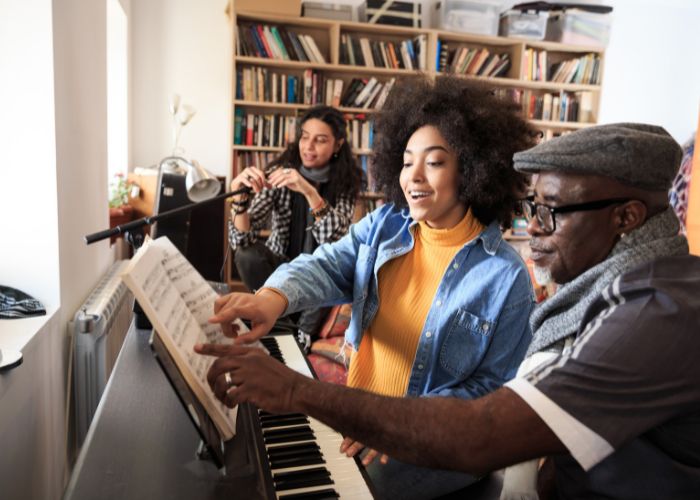
The Role of Talent and Skill in Piano Playing
It's important to acknowledge that talent can give someone a head start in piano playing. Those with a natural ear for music or good coordination may find some aspects easier.
But talent alone doesn't guarantee mastery. Skill development requires ongoing effort, even for those with natural abilities. With dedication and perseverance, anyone can acquire the necessary skills to become great at piano.
The Importance of Practice and Learning Methods
To master the piano or just be able to play at a level you enjoy, practice is key.
Regular, focused practice sessions are crucial for skill development. Breaking down challenging pieces, repetition, and gradually increasing difficulty are effective techniques for progress.
Working with a good teacher, using online learning resources, and taking structured lessons can also greatly accelerate skill development and provide valuable guidance.
But the most important of all is practice.
In fact, if I took all the the students I have right now and bundled them together, I'd say there's not much difference in terms of talent. They are all musically inclined. But there is one thing that really stands out in terms of how they progress and that's practice time. It makes all the difference.
The Intersection of Talent and Skill
In the debate between if playing piano is a talent or a skill, it's important to recognize that both play a role. Talent might give you an initial advantage, but skill comes from hard work and dedication.
Exceptional pianists often have a blend of innate talent and an unwavering pursuit of improvement. They also enjoy it. It's the combination of these factors that leads to being able to play the instrument a little bit and being able to play it well.
I've Been Told I'm Talented But This Is What They Don't See
Just an extra note here to say that I play piano in places where others hear me - like for choirs, for example. And I do get told I'm "so talented" but what people don't see if the hours of practice I put in, usually an hour or more per day, from age 7 to 18.
It's actually this practice and the guidance of my teachers, that led me to be the piano player I am today more so than anything I was born with. This is something that developed overtime.
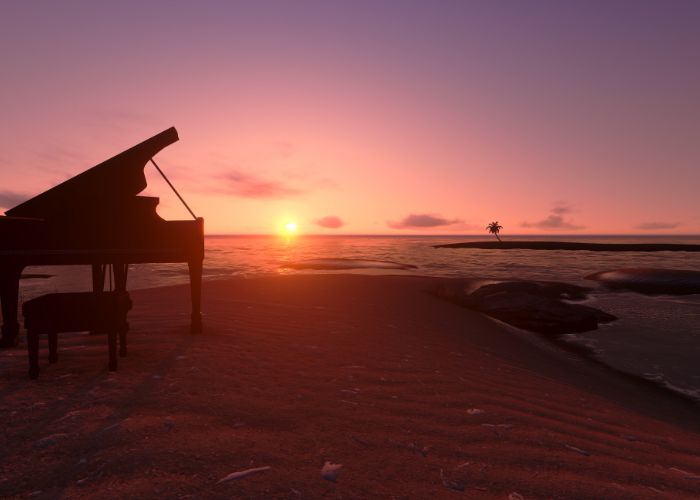
What About You? Is Playing Piano A Talent Or A Skill?
The best thing you could walk away from this little article with is that if you're wondering about talent vs. skill, you have enough in you to start learning.
All you need is interest and from there, you practice. You develop the skill of learning to understand and play music.
And that's really all you need.
So if you're wondering if you're talented enough to learn piano, the answer is yes. Now go and practice. :D
And if you're not sure where to start, you can start at my Beginner Piano Guide. It'll take you through the first steps.
FAQs - Piano Playing: Natural Talent or Learnable Skill?
Q: Can anyone learn to play the piano, or is it only for those with natural talent?
Q: Can anyone learn to play the piano, or is it only for those with natural talent?
A: Absolutely! Playing the piano is a skill that can be learned by anyone, regardless of natural talent. While some individuals may have a head start due to innate abilities, dedication, practice, and effective learning methods can help anyone develop their piano-playing skills.
Q: How long does it take to become skilled at playing the piano?
Q: How long does it take to become skilled at playing the piano?
A: How much will you practice?
The time it takes to become skilled at playing the piano depends on things like the amount of practice, frequency of lessons, and goals.
It's important to remember that skill development is an ongoing process, and progress is made gradually over time.
Q: Can adults learn to play the piano, or is it mainly for children?
Q: Can adults learn to play the piano, or is it mainly for children?
A: Adults can absolutely learn to play the piano. In fact, adults often bring a level of focus, discipline, and appreciation for music that can accelerate their learning process. With the right approach, patience, and consistent practice, adults can achieve significant progress and enjoy the journey of piano playing.
Resources:
Q: Do I need to own a piano to learn how to play?
Q: Do I need to own a piano to learn how to play?
A: While having access to a piano is ideal, it is not necessarily a requirement to start learning. Beginners can begin with a digital piano or keyboard, which is a more affordable alternative. As you progress and become more committed, investing in an acoustic or digital piano will enhance your playing experience.
Resource:
Q: Can I learn to play the piano without taking formal lessons?
Q: Can I learn to play the piano without taking formal lessons?
A: Yes but it does depend on your goals. If you'd like to learn classical piano, I'd recommend a teacher. However, piano chords are another option and something I recommend for adults. You can take a look at what I teach in my online piano chords course here.
Q: Is it necessary to learn music theory to play the piano?
Q: Is it necessary to learn music theory to play the piano?
A: Learning music theory can greatly enhance your understanding of the piano, piano chords and musical concepts. You will learn bits and pieces as you progress and can decide after a number of years of learning if learning theory is something you'd like to focus on.
Recent Articles
-
Piano Notes Chart
Nov 20, 23 10:21 PM
Find a piano notes chart for treble clef and bass clef notes as well as the different types of notes. -
D Chord on Piano + Diagram, How To & Theory
Oct 24, 23 12:20 AM
Learn how to play the D chord on piano with diagram, fingering, D/A, D/F# and a theory explainer. -
Diminished Piano Chords: Chart & How to Make Them
Oct 09, 23 09:23 PM
Learn the different diminished piano chords and how to make them. Here you'll find both a diminished chord chart and an explanation.
- Home
- Beginner Piano Guide PDF
- Is Playing Piano a Talent Or Skill
Free Download:
Ultimate Chord Cheat Sheet
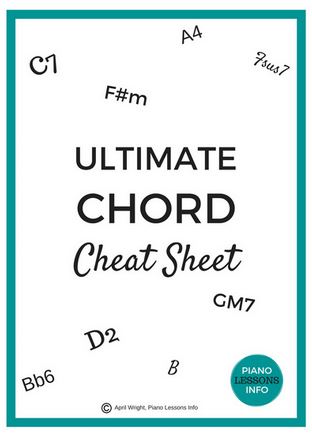
Subscribe below and get free access to the (printable) Ultimate Chord Cheat Sheet.
